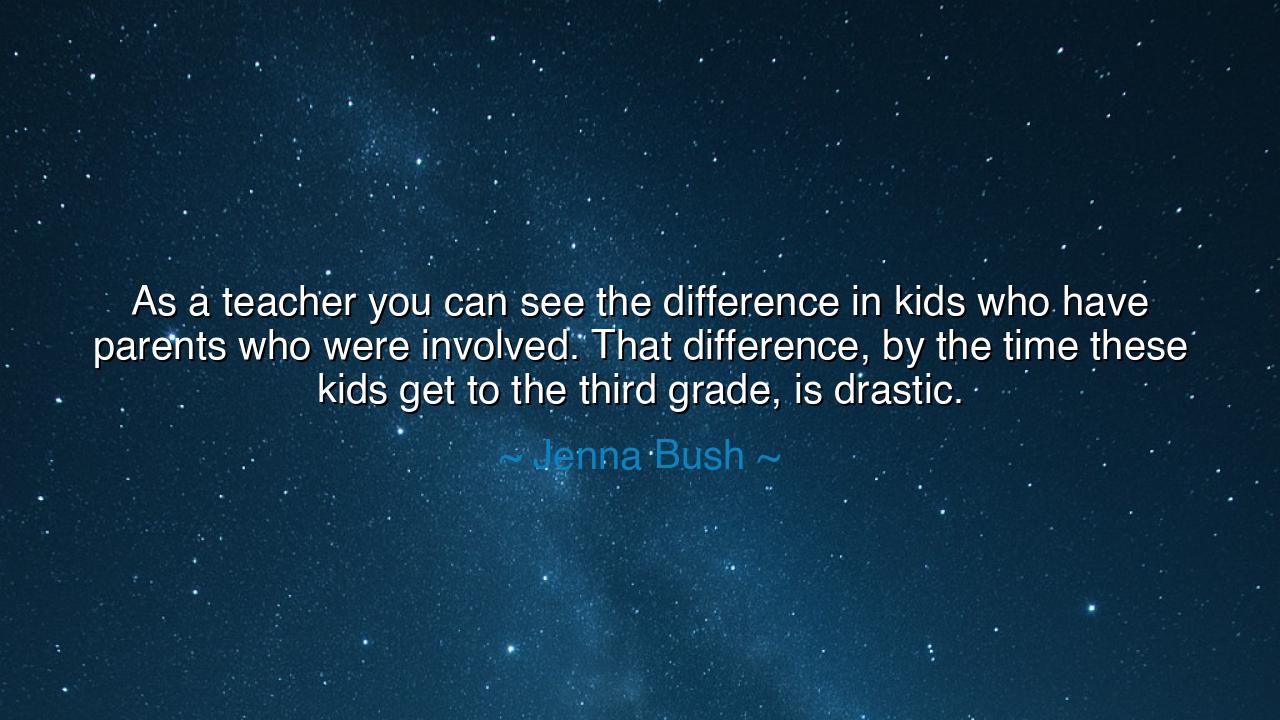
As a teacher you can see the difference in kids who have parents
As a teacher you can see the difference in kids who have parents who were involved. That difference, by the time these kids get to the third grade, is drastic.






In the words of Jenna Bush, we are reminded of the mighty role of parents in shaping the destiny of their children. She declares that by the time a child reaches the third grade, the difference between those who were raised with parental involvement and those without is already profound. This is not a matter of chance, but of presence, guidance, and love woven into the earliest years of life. It is in these hidden seasons of a child’s growth that the roots are planted, roots which will determine whether the tree grows strong and straight or weak and uncertain.
The meaning of this teaching is clear: the home is the first school, and the parents are the first teachers. Every word spoken, every story told, every embrace offered becomes a lesson written upon the heart of the young. If these seeds are sown with care, the child grows into confidence, curiosity, and resilience. But where the soil is neglected, where no gardener tends the field, the growth falters, and the child enters the world already carrying a burden of disadvantage. By third grade, the fruits of this early care—or its absence—are already visible for all to see.
History itself bears witness to this truth. Consider the story of Frederick Douglass, born into slavery, deprived of formal education. Yet when his mistress, though later forbidden, taught him the alphabet, and when he himself sought scraps of learning wherever he could find them, the seed of empowerment was planted. Though not from parental involvement in his case, it was the presence of an early guide that transformed his fate. His hunger for knowledge would ignite a flame so fierce that he would one day rise to be a great orator and leader. This shows us that a guiding hand in childhood, whether from a parent, teacher, or elder, can change the course of history.
In our own times, studies have confirmed what the ancients already knew: children whose parents read to them, speak with them, and engage in their learning develop stronger language skills, higher confidence, and deeper empathy. By the time formal schooling begins, they are already steps ahead. Meanwhile, those left to drift without such foundations struggle to catch up, their voices quieter, their steps slower. This is not destiny fixed, but it is a heavy burden to bear.
The lesson, O children of the future, is that parental involvement is not a small thing but a sacred duty. To be present in the life of a child is to shape the clay while it is soft. Read with them, listen to them, guide them, and let them know that their worth is not in question. For by doing so, you build not only their education, but their very sense of self. By the third grade, the world already knows who has been nurtured with care. Do not let your children be found wanting in this regard.
And to the teachers, the caretakers of the next generation, remember this truth as well. Your task is not merely to teach letters and numbers, but to bridge the gaps left by absent homes. Be the voice of encouragement, the steady hand, the source of stability for those who arrive without it. Though you cannot replace the parents, you can still plant hope and offer a light along the way.
Therefore, let this wisdom be inscribed upon the scroll of human remembrance: the difference is drastic because the responsibility is great. Children are not raised by schools alone, nor by chance, but by the steady presence of those who love them. Let every parent, guardian, and elder rise to this calling, and let every teacher remember their sacred partnership in this work. For the fate of nations begins not in parliaments nor in palaces, but in the humble bond between parent and child, in the unseen hours before the world has yet taken notice.






AAdministratorAdministrator
Welcome, honored guests. Please leave a comment, we will respond soon